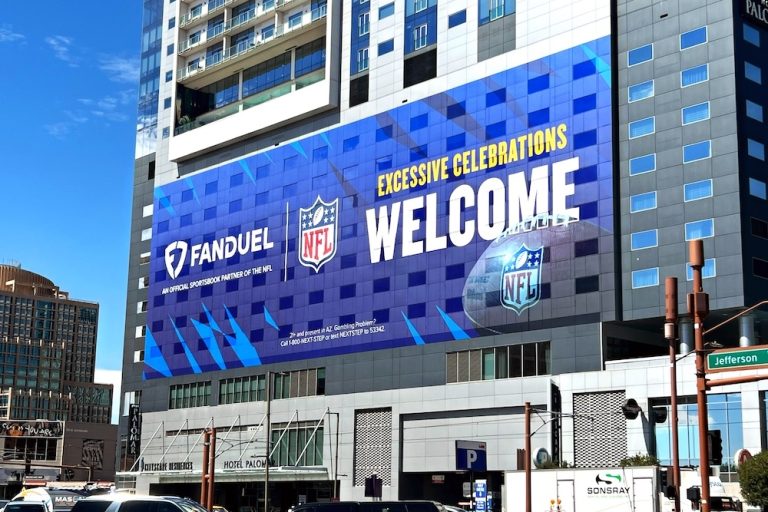Last week we talked about the various partnerships that have formed since sports betting was left up to the states to legalize in 2018. But partnerships aren’t the only business aspect of sports betting. Sportsbooks have gone all in with marketing and the states are reaping the benefits. Here’s what you should know about both.
Advertising
It is estimated that sportsbook operators spent $282 million on TV ads in the U.S., between September 2021 and May 2022, the majority of which was during the NFL season.
Currently, there are no federal advertising regulations that apply to sports betting in the same way as restrictions on other potentially addicting industries, such as alcohol or tobacco. These regulations are left up to individual states to decide and with the newness of the industry, regulations are slim and advertising is everywhere as many companies went all in with marketing to secure a share of the industry.
One major concern from advocates are the risks that an overabundance of ads will have on individuals with gambling addictions or on developing new ones. Many states report their gambling hotlines have seen a considerable increase in calls since sports betting began. Reports have some companies concerned that their ad blitz may bring about stronger regulations if they aren’t careful.
In Massachusetts, lawmakers are already considering putting limitations on sports betting ads, including a limit on promotional incentives, such as free credits and sign-up bonuses. New Jersey held a hearing in May this year to discuss potential steps at limiting advertising after an Assemblyman was disturbed by the sheer amount of commercials for sports betting. The director of the New Jersey Division of Gaming Enforcement issued a warning to companies that if they didn’t regulate their own marketing departments ‘they will be checked by us and it will happen in a way you won’t be happy with.’
Additionally, some companies quickly realized that this much advertising may not be the best use of spending. For example, last August Caesars Entertainment planned to spend $1 billion over the next few years, but quickly cut back that decision by February. That same week DraftKings fourth quarter earnings showed they had spent $278 million on marketing, equating to 28% of their expenses.
State tax revenue
Sportsbooks have made $10.8 billion in the last four years, bringing in $1.6 billion in taxes to the states. Pennsylvania has one of the highest costs of business for sportsbooks with an effective tax rate of 36% and an additional $10 million licensing fee. Regardless, sportsbooks in the state have seen $1.2 billion in revenue and paid $294.9 million in taxes since November 2018. Check out this breakdown of the effective tax rates of sports betting in each state.
Another angle to explore are income taxes. Taxes aren’t just coming from sportsbooks, they are also from consumers on their winnings. Just like gambling at a casino, winning a sports bet still makes you liable to pay taxes to the IRS. Taxpayers should be aware that most winnings are treated as ‘other income’ on their Form 1040, whether or not they receive a tax form from the sportsbook on their winnings.
The federal tax rate on gambling winnings is 24% and each state has their own rules, including some with different taxes for residents and non-residents. Brush up on the rules in your coverage area and make sure your readers know what to do with their winnings.







